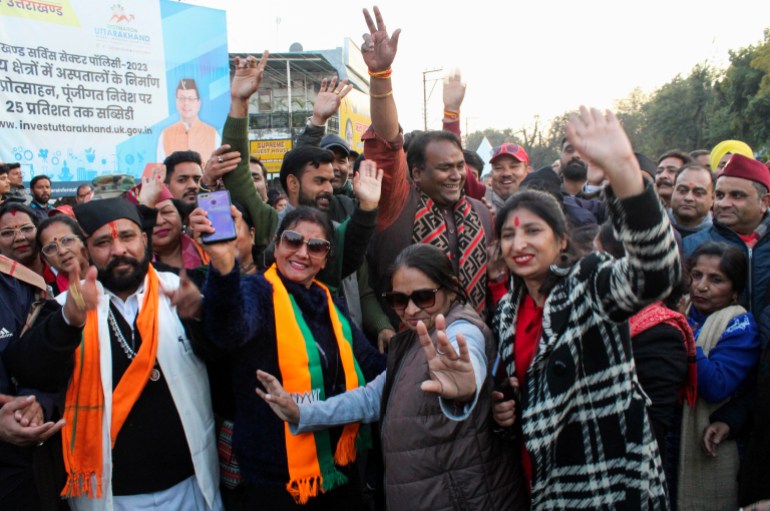Uttarakhand, a state in northern India, is beginning to implement a common civil code to replace religious laws, which will likely unease the country’s Muslim minority.
Uttarakhand’s Chief Minister Pushkar Singh Dhami stated at a press conference on Monday that the enactment of the so-called Uniform Civil Code (UCC) would bring about “equality.”
“This code is not against any sect or religion. Through this, a way has been found to get rid of evil practices in the society”, added Dhami, who belongs to Prime Minister Narendra Modi’s Bharatiya Janata Party (BJP).
The BJP’s long-term objective has always been the introduction of UCC to replace India’s symbiotic marriage, divorce, and inheritance laws.
The common civil code law was passed by Uttarakhand lawmakers in February of last year to establish a single set of standards for civil unions of all faiths, including marriage, divorce, and inheritance, and require live-in relationships registration.
Uttarakhand is the second state in India to pass a similar law. The only other state in the world with a common civil code, which was created when it was a Portuguese colony, is now.
Although criminal laws are the same for all, different communities – the majority Hindus, the over 200 million Muslims, Christians (about 26 million) and tribal communities – follow their own civil laws, influenced by religious texts and cultural mores.
“Totally biased against Muslims.”
By requiring divorce proceedings to take place before a civil court, the UCC claims that it guarantees the same rights to Muslim women as other women and that it ends polygamy.
However, experts say the law does not challenge patriarchal provisions in Hindu civil law, for instance, on the guardianship of a minor boy or unmarried girl going to the father, and only after him, to the mother.
After the passage of the Uttarakhand law, Namrata Mukherjee, a senior resident fellow at Vidhi Centre for Legal Policy, claimed that it “disproportionately affects Muslim personal law practices.”
Although a legally equivalent civil code should have universally accepted marriage, divorce, and succession provisions, regardless of one’s religious identity, it has selectively outlawed and criminalized religious minorities’ personal laws and customary practices, particularly Muslims, she had claimed.
Muslim leaders, therefore, accuse the BJP of trying to push through an agenda to impose what they say is effectively a “Hindu code” disguised as a UCC on other religious groups, who are currently allowed their own rules on marriage, divorce, adoption and inheritance.
Jamiat Ulama-i-Hind, India’s largest socio-religious Muslim organisation, said the implementation of the law in Uttarakhand was an “assault on citizens ‘ religious freedom”.
According to a statement from Jamiat, “this law is entirely based on discrimination and bias,” and the decision will be challenged in both the state high court and the Indian Supreme Court.
Asma Zehra, president of the All India Muslim Women Association, told the AFP news agency the law was “an attack on our identity”.
Muslim women would encounter “huge challenges” from this decision because it would conflict with their own religious laws, she claimed.
“This law is totally biased against Muslims and is a manifestation of Islamophobia”, she added.
Additionally, the law requires that couples register live-in heterosexual relationships in order to avoid receiving a three-month sentence or a fine.
Source: Aljazeera

Leave a Reply